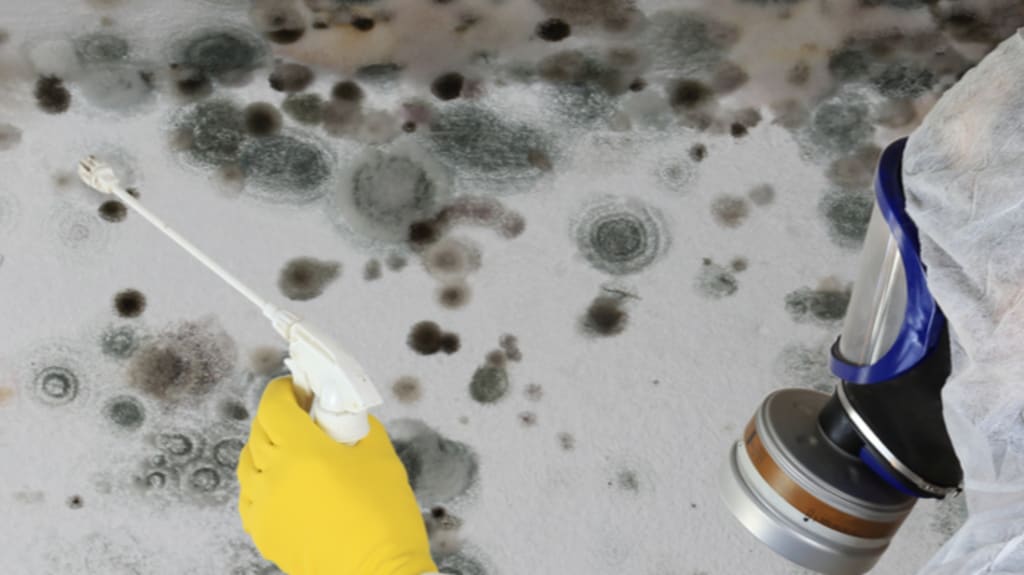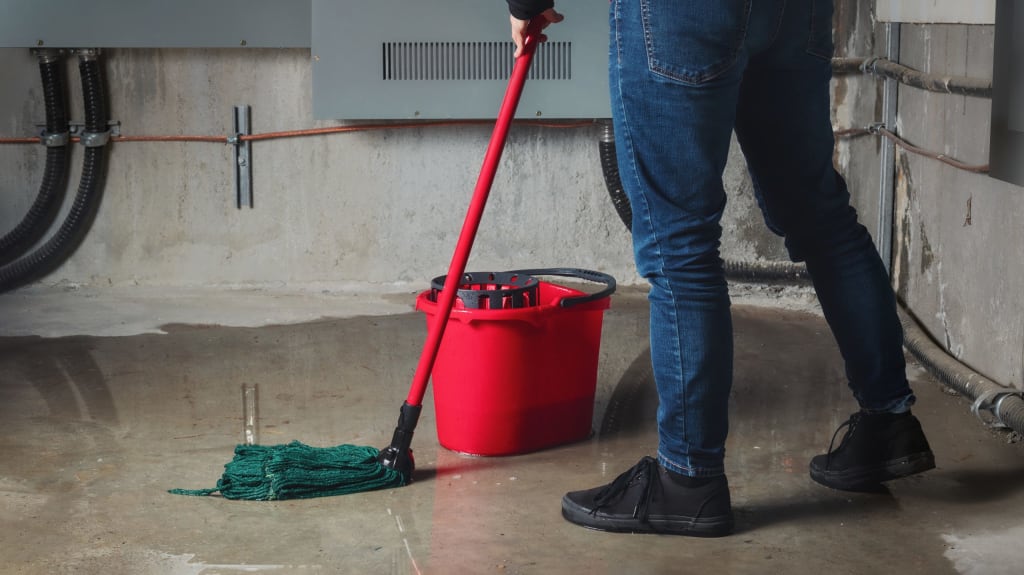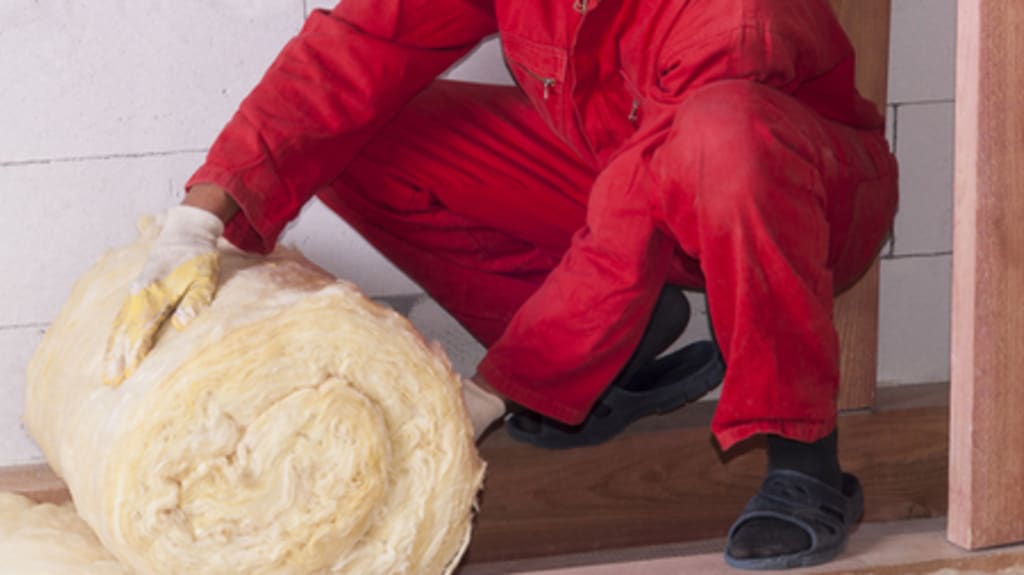Mold is a problem that no homeowner wants to have. It can be caused by a variety of factors, including basement humidity and water infiltration. It’s a significant issue to treat as soon as it’s spotted, to avoid damage to your home, and possible health problems. While there are many mold remediation solutions available, should you be taking on such a task yourself? Our experts help clarify this important question.

What is mold?
Mold is defined as fungus that grows on food or damp materials, according to Health Canada. Mold is more likely to form on humid surfaces that are porous, such as wood, gypsum, textiles, paper products, etc.
How to spot mold
Here are some signs of mold to be on the lookout for in your home:
A musty smell in a damp area of your home
New spots or stains on a porous surface, green, grey or black in colour
Fuzzy white substance underneath materials like wallpaper
Etc
What are the health risks?
Other than the damages caused to your home, mold can lead to health problems when the spores are released into the air and breathed in over time. Below are some signs that your health may be compromised by a mold contamination:
Unusual headaches
Eyes, nose or throat irritation
Dizziness and fatigue
Sneezing, coughing
Asthma
Allergic reaction
Abnormal breathing
Insomnia
Unexplained nervousness or irritability
Etc
How to remove mold
1- Find the source
As mentioned, there are many ways mold can find its way into your home. The important thing to remember is that the breeding ground for mold is always the same — humidity. It’s vital that before you do anything, you identify the source of the moisture. It could be from windows that need replacing, a crack in the foundation, basement or crawlspace humidity, lack of proper ventilation, among other things. Below are areas of your home that are susceptible to mold:
Window and door frames
Basement or crawlspace
Walls and ceiling in the kitchen or bathroom
Under the sink in the kitchen or bathroom
Inside of cupboards
Behind pipes
Ceramic tiles
Around cracks or lifting in paint caused by water infiltration
Etc
It is not always possible to see mold, as it can form inside walls or in the ceiling. If you cannot readily identify where the moisture is coming from, call in an expert.

2- Contain area
Though mold breeds on or in surfaces, its spores can become airborne, so it’s important to isolate a mold-infected area before decontaminating it. Seal off the room from the rest of the home with plastic, and be sure to turn off any central air vents.
3- Protect yourself
Another important step is to properly protect yourself. Fabrics are porous and can carry mold to another room, as well as be dangerous for your health. Be sure to get a coverall suit, mask, gloves, etc, designed for mold remediation. Coveralls and paint masks will not suffice to protect you.
4- Cleanse area
If the mold is located in a small area, you can use borax, a white powder cleanser you can pick up in the laundry detergent aisle. Mixed with water and left on the affected area, it not only kills the mold, but prevents mold from regrowing. Because it’s mixed with water, however, it is not recommended to use on porous surfaces like carpeting or drywall. It’s best to completely remove and dispose of porous areas that are clearly infected, as it may be too difficult or impossible to remove the mold and dry them, to prevent future mold growth.
It’s important to know that if you have a serious mold contamination, bleach will not suffice. It will lighten the colour but not remove the mold, and its humidity will create a fertile breeding ground for future mold growth.
As an extra precaution, it’s recommended to use a negative air machine to remove any airborne particles once the decontamination is complete. This will contain the mold particles and avoid further contamination to the rest of the house.
It’s important to know that mold remediation is not recommended for people with health issues, especially respiratory problems. All members of your household should stay as far away as possible from any contaminated areas until they have been completely cleared.

When to call in an expert
While these four steps may seem simple enough, there are many conditions in which it is highly recommended to call in a remediation expert. Below are situations in which you should forgo do-it-yourself treatments and call a mold decontamination specialist:
Mold on porous surfaces, like drywall, carpeting, insulation or wood
The presence of black mold is detected, as it is extremely toxic for your health
The infected area(s) is considered medium or large (more than 1 m² in size per area)
You are uncertain of the source of the moisture that caused the mold
You are uncertain of the extent of structural/internal damage the mold has caused
At the end of the day, it’s very difficult to know with certainty if you have completely decontaminated your home without the know-how of a professional remediation expert. Even if the area appears small, mold can cause damage to your home, and your health, if not treated properly.

How to prevent mold
There are several ways you can prevent mold from forming in your house:
Keep the house clean and dry
Reduce humidity sources in the house
Regularly air out closed spaces
Prevent water infiltration
Repair any existing water infiltration
Ensure the dryer house is well installed and clean
Maintain the air exchanger and ensure it’s not recirculating
Quickly cleaning up water spillage and keeping damp areas dry
Etc
Hiring a Verified Decontamination Expert
Your home and your family’s health is important to you, so it’s important to us. We understand the difficulties that come with finding a reliable and high-quality mold remediation expert for your project, so let us take away that stress! Our Renovation Advisors can invite up to three Verified experts to submit quotes for your decontamination project and help you decide which one brings the most value to you. Your assigned Advisor will be with you every step of the way, including finding you renovation contractors if need be after the remediation is complete. Appelez-nous today or fill out our form to get started!




